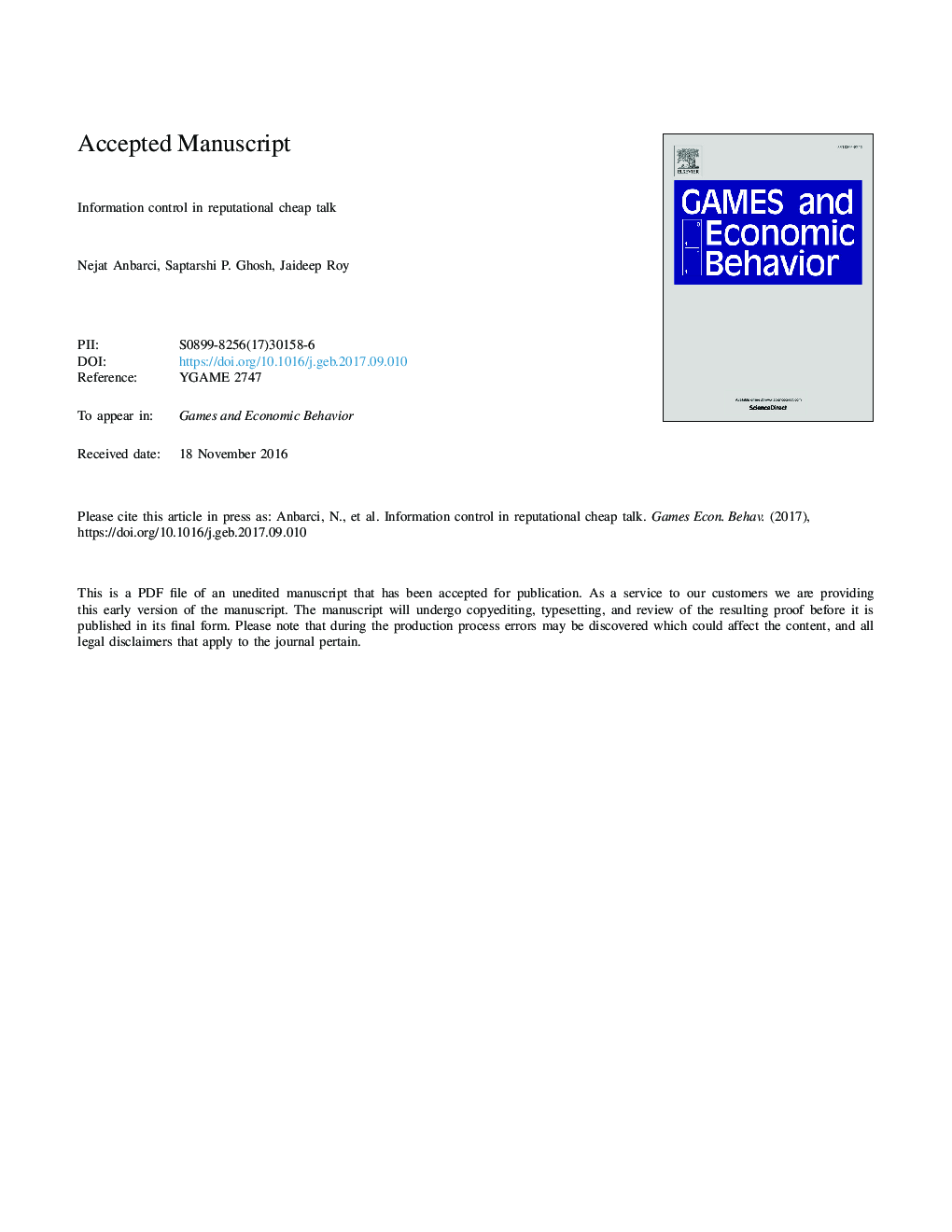| Article ID | Journal | Published Year | Pages | File Type |
|---|---|---|---|---|
| 7353203 | Games and Economic Behavior | 2017 | 11 Pages |
Abstract
An evaluator estimates as precisely as possible the innate talent of a careerist expert by observing the expert's performance in a prediction task, and has the ability to interfere with the expert's private signal by affecting its precision. The expert on the other hand knows her talent, observes this interference and can misrepresent private beliefs through strategic predictions to enhance her reputation. We show that when priors are significantly uninformative so that the task is a priori hard, the evaluator reduces the precision of the expert's signal, while when priors are significantly informative, he enhances it. We also find that the evaluator's objectives of maximising the precision of information about talent and maximising the probability of 'truthful expert advice' in the given task are aligned in and only in a priori hard tasks. We discuss implications of these results for market research decisions by a monopolist facing uncertain demand.
Related Topics
Social Sciences and Humanities
Economics, Econometrics and Finance
Economics and Econometrics
Authors
Nejat Anbarci, Saptarshi P. Ghosh, Jaideep Roy,
